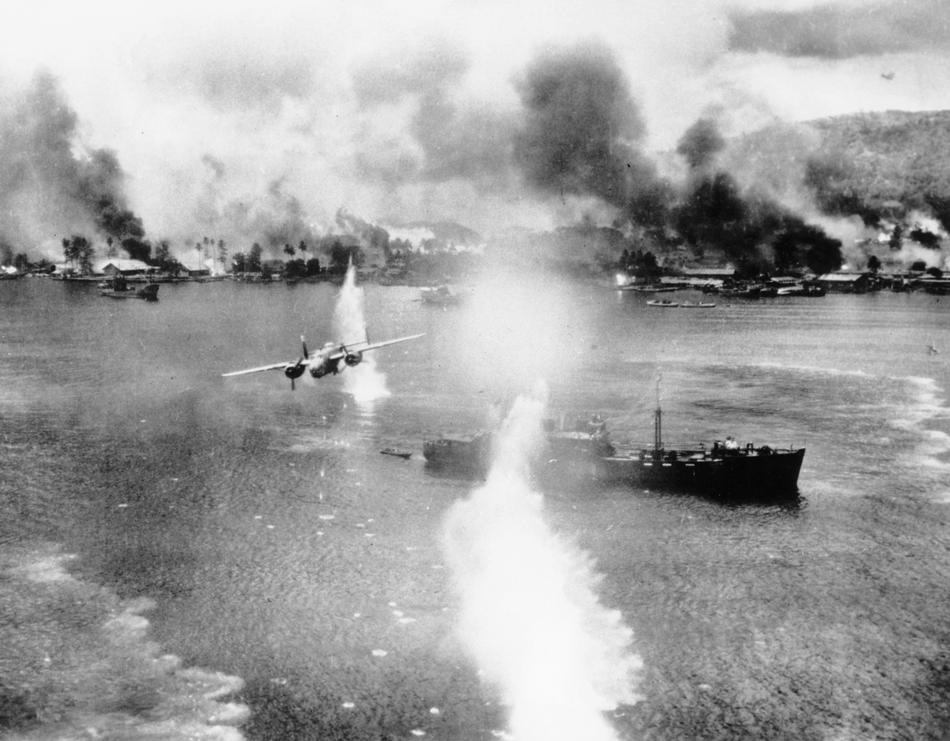2011 was the 70th anniversary of two epic world shaping events, the cataclysmic invasion of the Soviet Union by Germany and the Japanese surprise attack on the United States at Pearl Harbor, Hawaii. World War II, a conflagration that resulted in over 60 million deaths and involved every corner of the earth, continues today to cast a profound shadow over almost every country’s posture in the modern world and their reaction to perceived actions or historical inequities. Historians often describe the value of a distant mirror in objectively understanding historical events, waiting a sufficient number of decades until emotions cool and perspective clarifies. World War II is reaching that status, as the population that remembers in real time the events that led to the war passes on, and the books that recorded those events with acute memory become dated. The enormous number of volumes attempting to delineate the story of World War II is staggering, and one could surmise that something that has been treated so expansively by the world’s great historians would leave no room for further assessment. The contrary appears to be true, however, as new summary statements regarding the war and its denouement continue to be published. Two celebrated treatments have recently come forward and both are from eminent British historians, Max Hastings and Andrew Roberts. I am in the process of reading, and learning from them both.
Andrew Roberts has participated in the indispensable internet interview platform of the Hoover Institute, Uncommon Knowledge, and reviews many of the elements that defined the war’s reasons for being and eventual outcome. The learning lessons are many, but I’d like to bring forward a few for some comment prior to hearing Robert’s views in their entirety.
1) The radical political historical degenerate – Central to the calamity of World War II was the identification of a specific type of political leader who viewed the world in historical scope with their particular views in inexorable ascendancy, Adolf Hitler, Joseph Stalin, and Tojo. As Roberts points out, Hitler’s single minded focus on the concept of racial superiority and its need to establish hegemony over lesser races and ideologies, dominated every decision he took and prevented any kind of logical strategic thinking. Stalin, ideologically locked in his view of communism as the inevitable dominant ideology, suffered from similar strategic delusions, to the incalculable suffering of his people. Tojo had more precise view of what was possible, but no less delusional in his view of racial superiority, to the extent that he allowed his armies to perpetrate horrendous treatment and enslavement of millions of Asians. This overarching historical view, that any current catastrophic sacrifice is worth the eventual outcome of ideological purity did not die with World War II. Currently, Iran’s Khamenei and Ahmadinejad espouse the pretense of the ’12th Imam’, their pathological hatred of Jews and the existence of Israel, and their willingness to initiate world conflict to achieve the eventual Islamic caliphate resonates almost exactly to the verbiage of World War II’s racialists. No one should make the assumption that the outcome of such degenerate ideological purity would not again be cataclysm.
2) Wars fought by ideologues – The battles in World War II between Hitler and Stalin dwarf in size, scope, and sacrifice any comparable event in world history. The battles of Leningrad, Kursk, and Stalingrad have no reason for having been fought the way they were beyond the two leader’s need to participate in a forum that implied the clash of entire civilizations. Eastern front battles were titanic, because the leaders viewed their ideology as needing the purification provided by titanic sacrifice, with the elimination of any momentary weakness in will or dangerous sprouting of rational thought. Strategic retreats to improve the circumstance of battle have zero value to ideologues, who view the circumstances of the battle not as a military set-piece but a battle of the gods of ideology. The battles were fought on purpose with the blunt impact of massive forces, with no consideration whats so ever for the individual combatant. The result for the Germans were the deaths of millions of infantrymen and for the Russians, tens of millions of civilians and soldiers. Ideology through history has resulted in enormously greater destruction than any puny value its more positive ideals may have provided some in a peaceful society.
3) The innate weakness of ideological struggle- Roberts takes time to describe the relatively small sacrifice of the United States in World War II in proportion to the enormous sacrifices of the Germans and Russians, and the resultant ongoing dissonance between the former allies’ view of the conflict, and the current world. The lesson I take from World War II is somewhat different. The Germans may have “cracked” their resolve in taking on the enormous losses resulting from the Russian invasion, losing 4 out of 5 German soldiers to the Russians, but they did so purposefully, for the battles against the ultimate ideological competitor, Bolshevism, required civilizational sacrifice. This was not about defeating a country so much as wiping out forever an ideology and a people. The western allies were strategic thinkers and were not about to bleed themselves to death to prove a point. If the German Infantry were to be superior, the allies were superior on the ocean and in the air, and eventually technologically. The battle without a Russian cataclysm would have been more drawn out and more tactical, but ideology always makes its critical mistake in thinking its people will sacrifice forever for purity of ideology. I think the eternal truth of individual rationalism would have eventually dissected the German effort from within, and led eventually to the same outcome. As sane men, the Rommels and Guederians wouldn’t have forever participated in insanity. Not without great pain, but inevitably, none the less.
Enjoy a great historian’s perspective in Peter Robinson’s Uncommon Knowledge interview, courtesy of Powerline, of Andrew Roberts:
